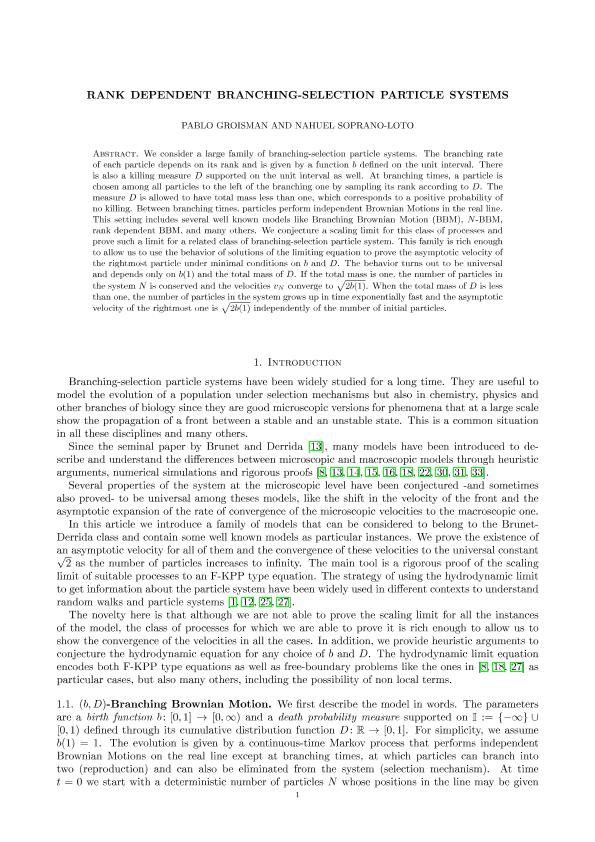Artículo
Rank Dependent Branching-Selection Particle Systems
Fecha de publicación:
08/2020
Editorial:
Cornell University
Revista:
arXiv.org
ISSN:
2331-8422
Idioma:
Inglés
Tipo de recurso:
Artículo publicado
Clasificación temática:
Resumen
We consider a large family of branching-selection particle systems. Thebranching rate of each particle depends on its rank and is given by a functionb defined on the unit interval. There is also a killing measure D supportedon the unit interval as well. At branching times, a particle is chosen amongall particles to the left of the branching one by sampling its rank accordingto D. The measure D is allowed to have total mass less than one, whichcorresponds to a positive probability of no killing. Between branching times,particles perform independent Brownian Motions in the real line. This settingincludes several well known models like Branching Brownian Motion (BBM),N-BBM, rank dependent BBM, and many others. We conjecture a scaling limit forthis class of processes and prove such a limit for a related class ofbranching-selection particle system. This family is rich enough to allow us touse the behavior of solutions of the limiting equation to prove the asymptoticvelocity of the rightmost particle under minimal conditions on b and D. Thebehavior turns out to be universal and depends only on b(1) and the totalmass of D. If the total mass is one, the number of particles in the systemN is conserved and the velocities vN converge to 2b(1)‾‾‾‾‾√. When thetotal mass of D is less than one, the number of particles in the system growsup in time exponentially fast and the asymptotic velocity of the rightmost oneis 2b(1)‾‾‾‾‾√ independently of the number of initial particles.
Archivos asociados
Licencia
Identificadores
Colecciones
Articulos(IMAS)
Articulos de INSTITUTO DE INVESTIGACIONES MATEMATICAS "LUIS A. SANTALO"
Articulos de INSTITUTO DE INVESTIGACIONES MATEMATICAS "LUIS A. SANTALO"
Citación
Groisman, Pablo Jose; Soprano Loto, Nahuel; Rank Dependent Branching-Selection Particle Systems; Cornell University; arXiv.org; 8-2020; 1-21
Compartir




